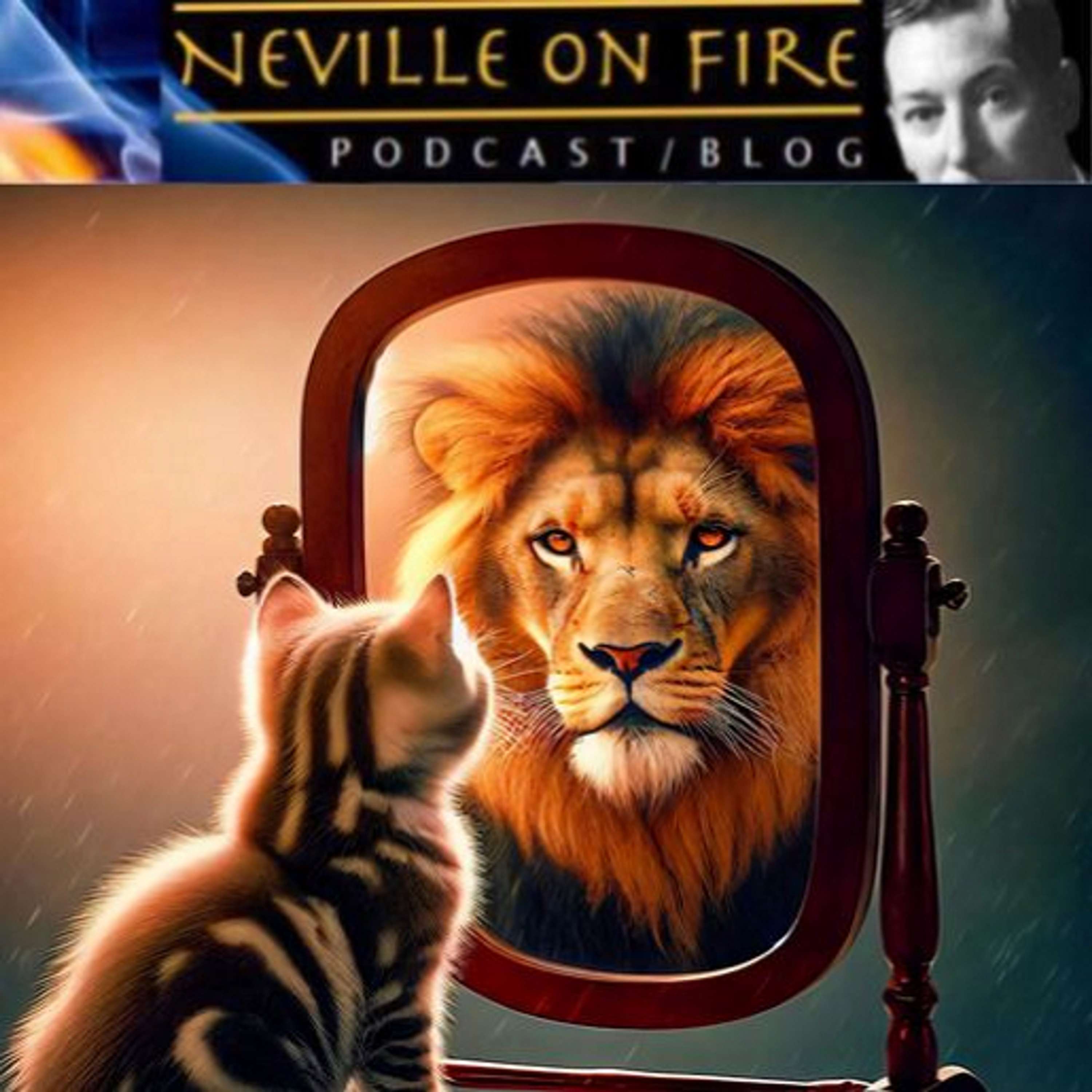Show Notes
Introduction
Both Napoleon Hill (Interview with the Devil) and Maurice Nicoll warn against drifting. There are many ways of drifting, on different scales. One effective action against drifting is to make a mental shift.
1. DRIFTING - INSTITUTIONAL MAN
2. DRIFTING ON AN HOUR TO HOUR BASIS
3. BEING RUTHLESS
4. DRIFTING COUNTERACTED BY LATERAL SHIFTING
5. DRIFTING ON A SOCIETAL SCALE
6. DRIFTING BY IGNORING THE REALITY OF THE PSYCHE
7. DRIFTING BY FAILING TO FIND WORTHWHILE MEANING
8. DRIFTING BY LYING TO ONESELF
SUMMARY
CONCLUSION
RESOURCES
Napoleon Hill, Interview with the Devil
Maurice Nicoll, Psychological Commentaries
Show Transcript
[edited for clarity]
This is Episode 18. Do Not Drift, Shift Over
What is drifting? Drifting is to attend obsessively to an endless series of ordinary life concerns, distractions, demands, and even legitimate pursuits, but really all devoid of any unifying worthwhile vision. Essentially it comes down to a continual running away from oneself, because, underneath it all, you've got this nagging feeling that you've really got to get down to something real within yourself. And yet you can't seem to. You can't seem to call a halt to time.
Both Napoleon Hill in his classic Interview With the Devil, and Maurice Nicoll somewhere in the Commentaries, I'm not sure where -- they both independently came up with this admonition to their readers: do not drift. So in this podcast episode, what we'll do is talk about drifting in different aspects. It has different manifestations and scales, and also talk about what we can do about it.
1. Drifting and the institutional man.
Are you drifting by virtue of your engagement with or over identification with some institution or other? What I mean is compromising yourself in some way that is really detrimental. We've talked about institutions so much in the past episode or two. So, for example, we covered family, education, academia, religion, career, work, government, finance, science itself -- or perhaps better called the science, which is the co opting of real science for the sake of propaganda -- mass media, social media, commercial, consumer culture, militarism, war, patriotism, technology, clubs, professional associations...
It seems like every aspect of human existence is dominated by one or another institution. Well, if there's a series of laws of the institution, then that would be the first one, the ubiquity of institutions.
The next one might be the law of consumption. So anyone entering into the ecosystem of an institution eventually finds himself somehow short-changed and used up, either intellectually, morally, physically, emotionally, financially, or spiritually. Now, you may not wish to characterize the institution in that way because you feel you're benefiting from it. That's entirely possible. But it's also true that another law enters in here, the law of sleep, where a relatively stagnant life will result from 100% compliance within the institution.
There might also be a law of rebellion which says that anyone challenging the institution on its own terms will subsist ineffectually at the margins of the institution until he is ejected.
And finally, there's a law of escape. So the escape from the institution is possible, but that would occur in a number of stages.
Well, speaking from experience, I've had my struggles with institutions, first of all being completely co-opted and brainwashed by them, secondly, by awakening within them, and third, by struggling to get out of them, even though I felt sort of a residual loyalty and hence a sense of guilt. The key message that is, don't maintain a relationship of servitude towards an institution out of a false sense of duty, when it is somehow significantly detrimental.
2. Drifting on an hour-to-hour basis.
Well, today I was shown something in my own character. Earlier on in the day I was inspired and I had a strong sense of my own vision. And then later in the day, I suddenly found myself very far removed from my nobly conceived goals. This is explained in the Fourth Way through the doctrine of “I’s”. In other words, an individual is actually divided into many different sub-personalities, and I think dissociation in that sense can be severe. They talk about one aspect of your being not even remembering or recognizing or knowing about another part of your being that makes decisions and signs checks for the whole person, in a tragic sort of way.
Well, the state that I'm talking about here, where I drifted today, is the state where you have a knowledge of that by sort of an uncomfortable underlying feeling, which eventually prompts a moment of reawakening.
3. Being ruthless.
The reason I bring that up is because it seems so common to be distracted, to not be able to simply take a task or an assignment and then just go out and do it, regardless of the distractions or the barriers or the hindrances.
Going back to author Rolf Alexander, he makes an exercise out of that. He instructs you to train the will by just going out and “ruthlessly” -- that's the word that he uses -- go out and do the thing that you had determined to do.
It's always a relief to have extended periods of time away from the television. It's also disconcerting to go to YouTube because you want to find something, and you're presented with a whole series of items that are carefully selected to distract you. They've trolled all your internet content and so they know what's going to attract your interest. The fact is, if you don't have the discipline of mind to ruthlessly pursue a single train of thought and complete your research on a given topic, your mind is going to be endlessly fragmented.
4. Drifting counteracted by lateral shifting.
The reason I brought up my experience today was for two specific reasons. First of all, to illustrate that even after dying to oneself in certain ways, or acknowledging gains and making progress in that sense, there continues to exist the old nature alongside your new nature.
So there's this back and forth, and you can fall back into the old nature quite easily. But here's the second point -- and this is why I brought up the ruthlessness. You think you've taken a step back, you've fallen back. But once you see that there's not so much trouble in escaping it, you make the determination to instantaneously make a lateral move that is a mental shift within you. Ruthlessly go and do this thing -- by which I mean immediately appropriating the new and innovative self, your new man. It's like stepping into a different vibration.
Similarly, you could find yourself in the state of being in a great deal of emotional turmoil or sort of a morass of confusion, or dismay over the complexity of having to overcome so much in our nature. And yet the whole thing can be dropped in an instant with this lateral move that I'm talking about.
Now, how is this possible? It's only possible now, after we've had some experience and we've done some preparatory work. We have the vision. We know what we're about. We don't want to simply go from one mundane activity to the next without keeping that vision close to us. So you have what Nicoll called work memory. In other words, you have enough associations, ideas, and true experience of observing yourself that form the basis of being able to make this instantaneous shift. It's all about a conscious choice.
5. Drifting on a societal scale.
Well, I just mentioned vision, but the question then arises, what is the vision? We're exploring and experimenting with Neville's instructions and advice as to our true nature. That's really the central point of the podcast series.
But if we were interested solely in manifesting on a personal level, then we would limit the discussion to that. But we've been talking about other things, like the stifling effects of institutions, for example. So this indicates sort of a political position. So the question becomes, apart from tending to the minor aspects of life, successes on a daily basis, and so on, what type of society are we trying to manifest? What is your ideal for humanity?
Now, this is worthwhile thinking about because it becomes a question of among the, as Neville says, the “unnumbered warring beliefs” that comprise humanity. What are the political, economic and social forms that are the correct ones, the desirable ones, the ones that are proper to man? What type of society is the most conducive to what you believe the human ideal to be?
If you don't think about this, then others with definite ideas -- who may well understand what the psychological technique of manifesting is all about -- will cause you to fall under their spell. So your own abdication of the question renders you susceptible to your own unconscious tendencies, if you want to look at it psychologically.
It's entirely possible that without carefully considered ideas that inform your vision, and a consequent sense of urgency, things will change for the worse. And you may not like what others have in store for you.
Now, it isn't even necessary to conceptualize good versus evil. Ultimately, there's no distinction, as I'm coming to understand. It's enough to realize that whatever people do, whatever the level of the “leadership” (so-called) or the “followership”. Whatever people do in those roles, they do because -- to the extent that they think about it at all -- they do that because that's what they understand to be the good thing to do, or at least the necessary and the right thing to do. If you want to maintain your freedom of choice, then I suggest you do not drift with regard to your view of how society ought to go, your vision. References: Academy of Ideas (Youtube channel), and go back to E7, the link to The Matrix of Power.
6. Drifting by ignoring the reality of the psyche.
So I could reframe this whole argument about the nature of society in psychological terms. Both Jung and Gurdjieff remarked on this. They said that the revolution that people are seeking is not outside the revolution. The overthrow of the old regime and the creation of something new is something that has to be carried out individually, on a psychological basis. Gurdjieff said that he was talking about a real revolution, a genuine one, as opposed to the outward political revolution, which always turns out to be a false one. That's consistent with Neville's opinion saying that the world is ourselves pushed out. Society is manifestation of our own psyche.
So do not drift by ignoring that external change must be preceded by a change in consciousness.
7. Drifting by failing to find worthwhile meaning.
Well, apparently Jung said that the lack of meaning is the principal neurosis in modern society. People view institutional religion with derision. There's a tendency in rejecting the institution to throw out the beneficial, necessary, and good aspects. Although I criticized a literal interpretation of Christianity earlier in this podcast series, I do have sympathy with people who are striving towards a higher meaning (even if it is a version of Christianity that I don't quite agree with) as opposed to simply giving into nothing but culturally dictated values or commercial culture.
It's necessary for a sane orientation to life to have some aspiration to some transcendent meaning.
8. Drifting by lying to oneself.
Sit down quietly with yourself and determine: where am I lying to myself? Stop the self deception.
Summary
Well, let's go through a summary of what we covered today.
We reviewed drifting on the basis of over-identification with one or another institution. We looked at drifting on a daily or actually hour by hour basis, where we experience a fall into an old habitual state. But then we realized that we have the ability to immediately and ruthlessly do the lateral shifting and put on the new man.
So notice here that will is not the “clenched jaw” sort of will. It's will and consciousness; they are one and the same thing. I's not a forcing, it's a realizing.
Well, we reviewed after that drifting in terms of ignoring hazardous directions that society is taking, and recommended going back to some references that I suggested in E7. We characterized political change as actually a psychological renewal, reflected in the outer world. We suggested putting a stop to major drifting in the form of failing to find transcendent meanings, and in the form of lying to oneself.
Conclusion
My conclusion is to suggest that we stop drifting drifting in all the different manifestations that we've been talking about, but not by the adoption of rigidity, intenseness. On the contrary, it's by adopting a relaxed and flexible attitude, all the while informed by your noble vision -- what you really want to see manifest; what is good for yourself, what is good for society. And informed by this confidence that you can laterally shift at a moment's notice.
Now that's a healthy activity and worthwhile use of the imagination. What is the major significant meaning that we are pursuing in this whole podcast series? It's the creative active mind vs. passivity and the hypnotized mind. Continually put off every nihilist interpretation of life. Make our goal the internalization, the true understanding of our own creative nature; that we are indeed the authors of everything that we behold in the world.
Listen On
Also Listen
-

Who is Man? Neville’s Radical Answer
Book draft chapter 1. S1E01 revised, inviting your comments.https://nevilleonfir -

The Power of Noticing: How to Interrupt Mechanical Life
Conscious intervention is required for psychological growth. -

Let Go to Move Ahead: Neville and Sedona
First, review of first 15 episodes Season 2. Then explore incremental psychologi -

Conscious Self Persuasion
Science tries to define consciousness where it does not exist, and hypnosis whil


Comments & Upvotes